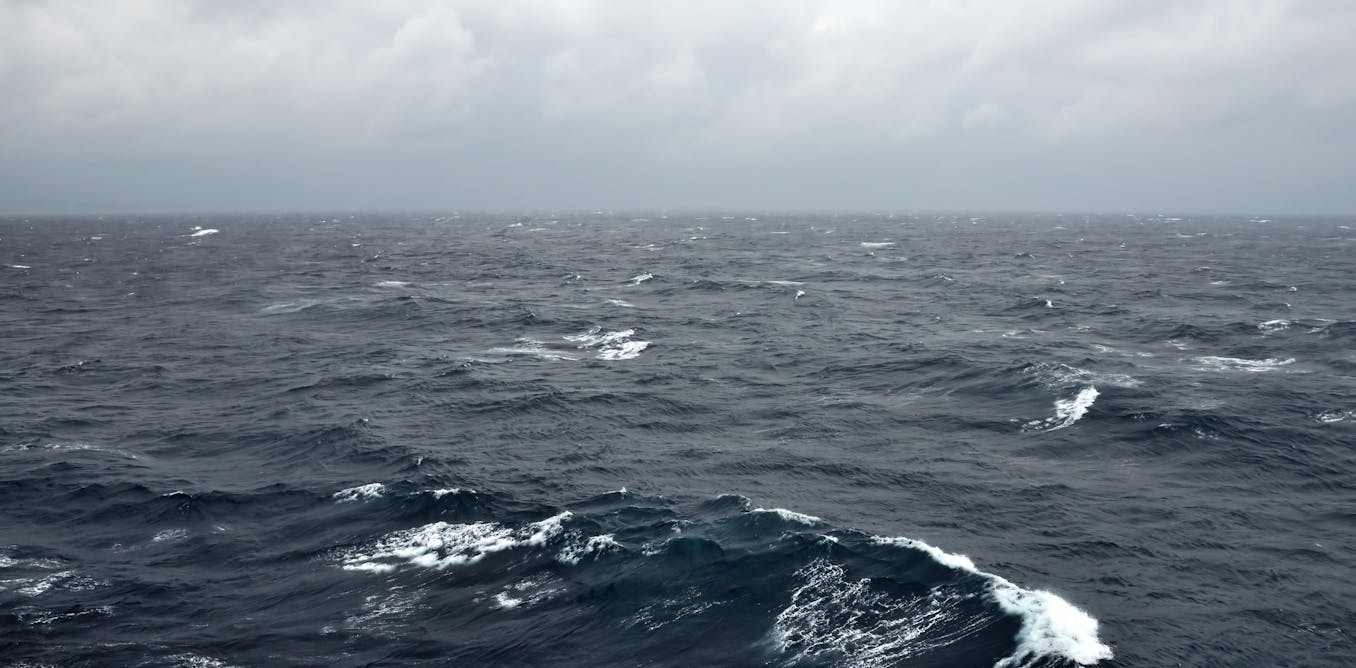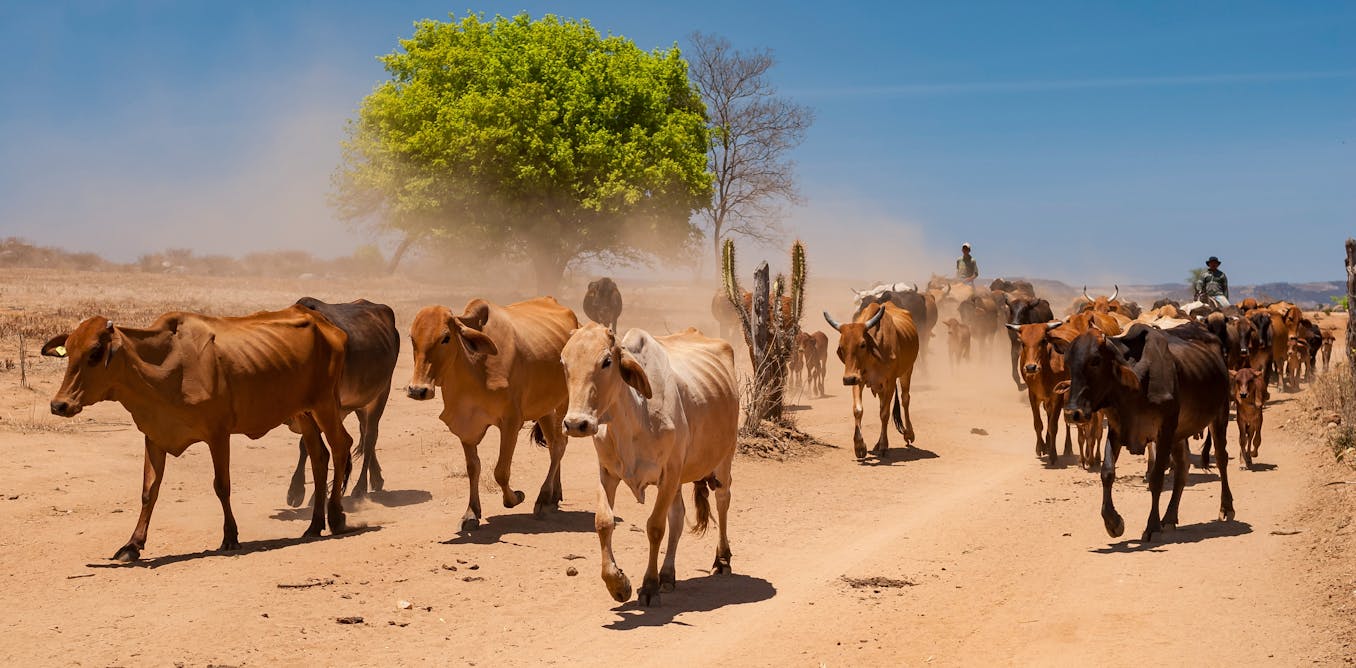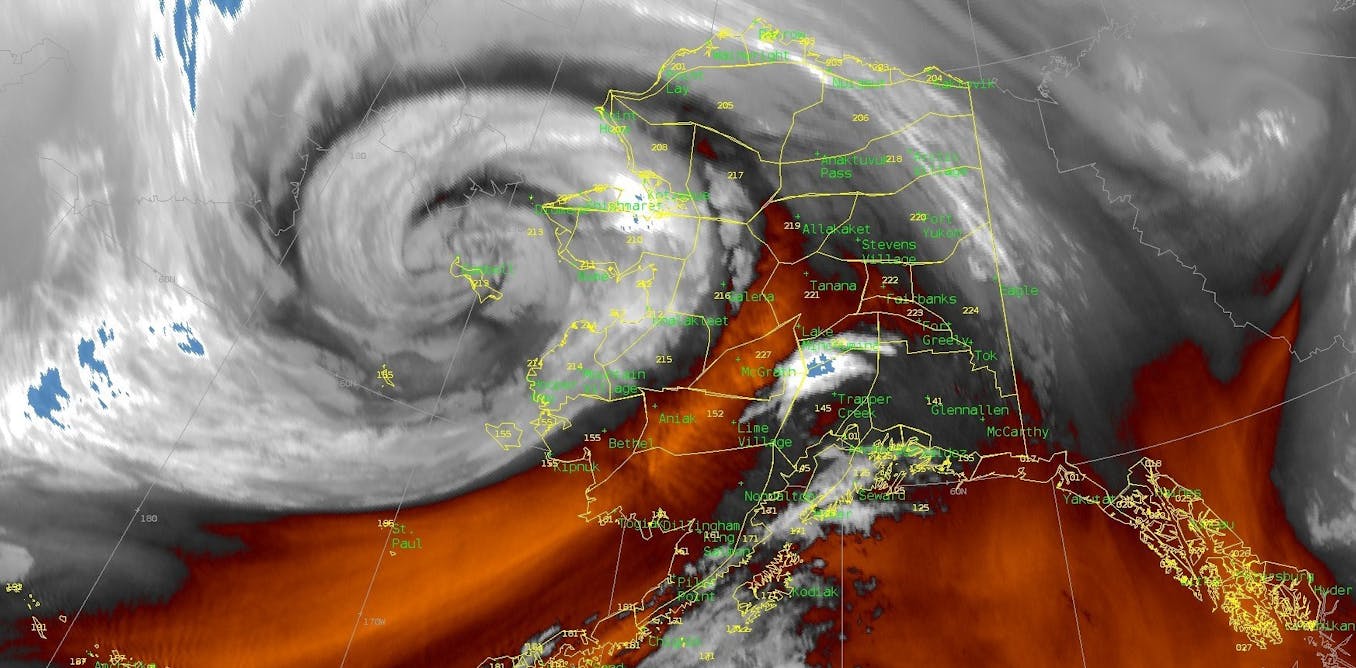La Niña is finishing an extremely unusual three-year cycle – here's how it affected weather around the world
The Pacific Ocean climate pattern is the opposite of El Niño.
Feb. 28, 2023 • ~7 min
Why the UK has only had one named storm so far this winter – an expert explains
An expert explains why the UK’s winter has been relatively calm.
Feb. 23, 2023 • ~6 min
Fukushima to release contaminated water – an expert explains why this could be the best option
Japan’s Fukushima Daiichi Nuclear Power Plant is set to release radioactive wastewater into the Pacific Ocean – but the cause for concern is minimal.
Jan. 23, 2023 • ~7 min
England may be set to flood at the end of winter – here's why
The Met Office has predicted that England is to be affected by flooding this February.
Jan. 10, 2023 • ~8 min
Typhoon Merbok, fueled by unusually warm Pacific Ocean, pounded Alaska's vulnerable coastal communities at a critical time
Most of the flooded communities are Indigenous and rely on subsistence hunting that residents would normally be doing right now. Recovering from the damage will make that harder.
Sept. 19, 2022 • ~7 min
What causes a tsunami? An ocean scientist explains the physics of these destructive waves
Tsunamis aren’t just bigger-than-average waves. Triggered by undersea earthquakes or volcanic eruptions like the one in Tonga, they are fast, massive and potentially destructive. Here’s why.
Jan. 19, 2022 • ~8 min
California's latest offshore oil spill could fuel pressure to end oil production statewide
Offshore oil drilling has a long history in California, but is highly unpopular today. The latest major spill is likely to fuel efforts to wind down oil and gas production statewide.
Oct. 5, 2021 • ~8 min
Move over, corn and soybeans: The next biofuel source could be giant sea kelp
Making biofuels from crops grown on land poses trade-offs between food and fuel. A new study looks offshore.
April 1, 2021 • ~6 min
/
4







